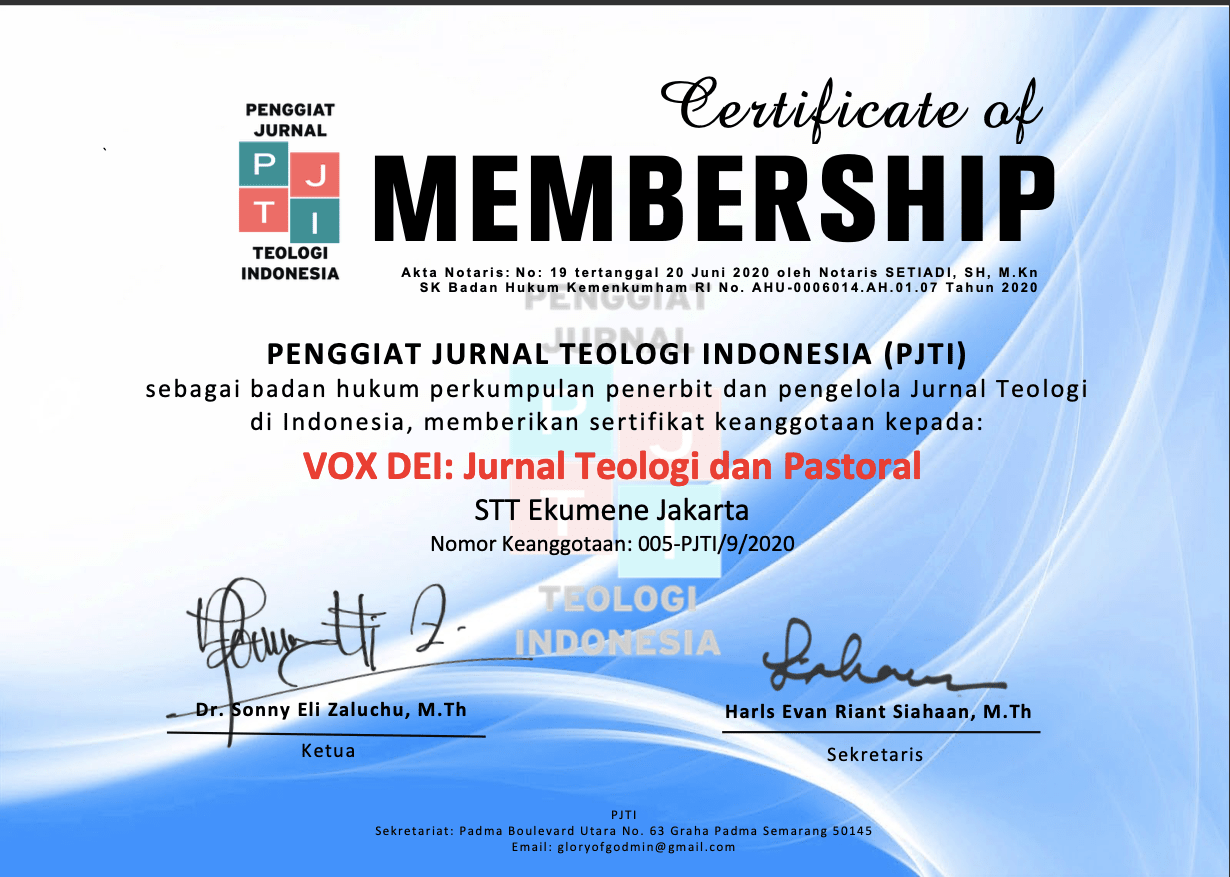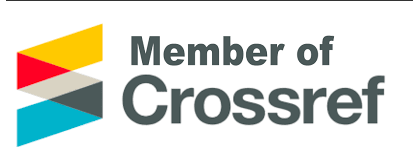Publication Ethics
Publication and Authorship
1. All papers submitted are subject to a rigorous peer-review process by at least two national reviewers who are experts in the field of certain papers.
2. The review process is a blind peer review.
3. The factors considered in the review are relevance, health, significance, originality, readability, and language.
4. Possible decisions include acceptance, acceptance with revision, or rejection.
5. If the author is encouraged to revise and resubmit the post, there is no guarantee that the revised post will be accepted.
6. Articles that are rejected will not be reviewed again.
7. Acceptance of papers is limited by legal requirements that will apply regarding defamation, copyright infringement, and plagiarism.
Writer responsibility
1. Authors must state that their manuscripts are their original work.
2. The author must state that the manuscript has never been published elsewhere.
3. The author must state that the text is not currently considered for publication elsewhere.
4. The author must participate in the peer-review process.
5. The author is required to do a revocation or correction of errors.
6. All authors mentioned in the paper must make a significant contribution to the research.
7. The author must state that all data in this paper is real and original.
8. The author must notify the Editor about a conflict of interest.
9. Authors must identify all sources used in making their manuscripts.
10. Authors must report any errors they find in published papers to the Editor.
Responsibilities of the Reviewer
1. The reviewer must keep all information about the paper confidential and treat it as special information.
2. Reviewers must express their views clearly with supporting arguments.
3. Reviews must be done objectively, without personal criticism from the author.
4. The reviewer must also request that the Editor-in-Chief pay attention to any substantial similarities or overlaps between the manuscripts being considered and other published papers which have personal knowledge.
5. The reviewer must identify the relevant published work that has not been cited by the author.
6. Reviewers may not review manuscripts that have a conflict of interest as a result of competition, collaboration, or other relationships or connections with the authors, companies, or institutions connected with the paper.
Editor's responsibility
1. The editor has full responsibility and authority to reject/accept articles.
2. The editor is responsible for the overall content and quality of the publication.
3. Editors must always consider the needs of writers and readers when trying to improve the publication.
4. Editors must guarantee the quality of papers and the integrity of academic records.
5. The editor must publish the wrong page or make corrections when needed.
6. Editors must base their decisions on only one importance, authenticity, clarity, and relevance of the paper to the scope of the publication.
7. Editors may not reverse their decision or cancel the previous editor's decision without serious reason.
8. The editor must maintain the confidentiality of the reviewer.
9. Editors must ensure that all research material they publish complies with ethics guidelines that are accepted nationally and internationally.
10. Editors should only accept papers if they are confident.
11. Editors must act if they suspect a violation, whether a paper is published or not published, and make all reasonable efforts to continue to get a resolution for the problem.
12. Editors may not reject papers based on suspicion, they must have proof of violations.
13. Editors may not allow conflicts of interest between staff, writers, reviewers, and board members.
Revocation
Papers published in JOURNAL VOX DEI will be considered withdrawn in the publication if:
1. They have clear evidence that the findings are not reliable, either as a result of misconduct (eg data transplanting) or dishonesty (eg miscalculations or experimental errors).
2. Previous findings have been published elsewhere without proper cross-referencing, permission or justification (eg cases of excessive publication).
3. Articles are the result of plagiarism.
4. Unethical research reports.
























